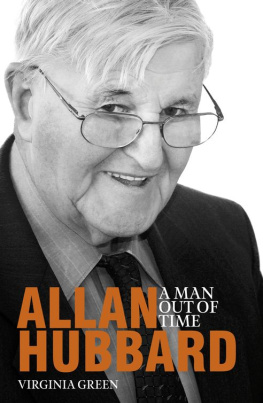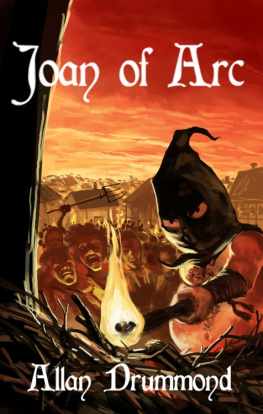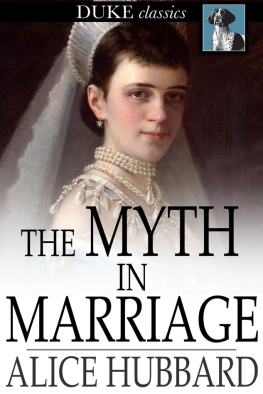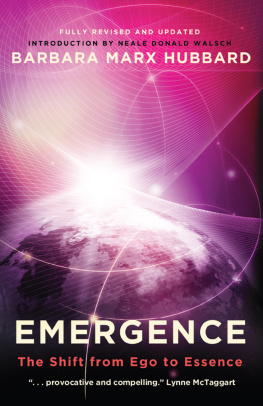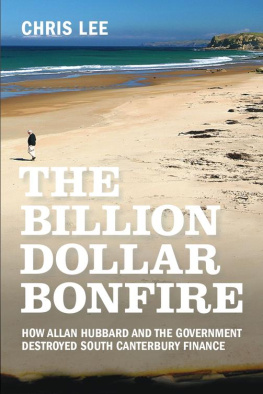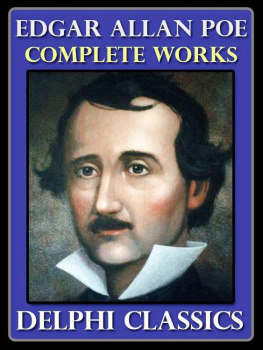Virginia Green - Allan Hubbard: A Man out of time
Here you can read online Virginia Green - Allan Hubbard: A Man out of time full text of the book (entire story) in english for free. Download pdf and epub, get meaning, cover and reviews about this ebook. year: 2010, publisher: Penguin Random House New Zealand, genre: Non-fiction. Description of the work, (preface) as well as reviews are available. Best literature library LitArk.com created for fans of good reading and offers a wide selection of genres:
Romance novel
Science fiction
Adventure
Detective
Science
History
Home and family
Prose
Art
Politics
Computer
Non-fiction
Religion
Business
Children
Humor
Choose a favorite category and find really read worthwhile books. Enjoy immersion in the world of imagination, feel the emotions of the characters or learn something new for yourself, make an fascinating discovery.
- Book:Allan Hubbard: A Man out of time
- Author:
- Publisher:Penguin Random House New Zealand
- Genre:
- Year:2010
- Rating:3 / 5
- Favourites:Add to favourites
- Your mark:
- 60
- 1
- 2
- 3
- 4
- 5
Allan Hubbard: A Man out of time: summary, description and annotation
We offer to read an annotation, description, summary or preface (depends on what the author of the book "Allan Hubbard: A Man out of time" wrote himself). If you haven't found the necessary information about the book — write in the comments, we will try to find it.
Allan Hubbard: A Man out of time — read online for free the complete book (whole text) full work
Below is the text of the book, divided by pages. System saving the place of the last page read, allows you to conveniently read the book "Allan Hubbard: A Man out of time" online for free, without having to search again every time where you left off. Put a bookmark, and you can go to the page where you finished reading at any time.
Font size:
Interval:
Bookmark:
To my father, Gib Green
a fine Southern man.
A llan Hubbard remains an enigma even to his close associates, but I was fortunate to meet him at a time when he was opening up about the hardships of his dismal childhood. He had read my earlier book on the father of New Zealands electronic industry, Angus Tait, a man Allan admired and who was related to Allans wife Jean. I asked if I could see him and perhaps persuade him to work with me on a biography of his own. He said by all means come, but he doubted a book about him would be of interest. So late December 2005 I met Allan for the first time. He was in the office on a Saturday and opened up the doors to me dressed in the shaggy brown hand-knitted jersey and roman sandals that make up his unvarying weekend attire. He kicked off our meeting by saying that he was just ordinary, but the story he told me was anything but.
Allan survived an impoverished childhood in Dunedin by turning to petty crime and running a gang that controlled whole swathes of the Leith stream and surrounding hillsides. With no money even for coal to cook meals, he became very resourceful in meeting his and his familys needs. His dance on the wrong side of the law might have developed into a fully-fledged life of crime if it hadnt been for the Knox Church community that embraced him, challenged him with rigorous scouting activities, tried to strong-arm its moral code into him and finally succeeded by giving him a book that transformed his life.
Allan didnt agree to do a biography in 2005, but he did lend me his precious copy of the book, a memoir of the Reverend Fergus McLaren, a fallen war hero who was the kind of man he wished his father had been. On a subsequent trip to Wanaka, I visited the Hawea Flats church and sent Allan a photo of the memorial there to Fergus. He wrote to me that he was moved to tears by this photo, because it reminded him of the pilgrimage hed made as a 17-year-old to the Central Otago churches Fergus had preached at.
Our correspondence continued and he sent me other books that were important to him. Finally early in 2007 he agreed to embark on this book together. He spoke with great gusto about the experiences of his youth, and I learned what entertaining company he could be. He spoke in less detail about the businesses, but we sketched out a plan for how to approach them a chapter for each of the major businesses he was associated with. It was only later I realised the sheer scope of my assignment: to condense the history of five major businesses into single chapters. Not to mention the expanse of Allans philanthropic activities, his assistance to the South Canterbury region and farming, and not least the friendships hed nurtured since his childhood. The only area that was off-limits was his family. Jean Hubbard was happy to be interviewed but I agreed to her request to maintain the privacy of their daughters.
A comprehensive biography would have taken ten years and several volumes. I decided to show representative examples of Allans work and focus on the people stories that expressed the unique way that Allan worked as a businessman and as a philanthropist.
So this book has developed over the last few years, from interviews with Allan during regular visits to Timaru, interviews with his associates around the country, and from other research. From time to time Allan would express reservations about publishing his biography that it would seem like skiting. I was able to reassure him that many, many people were keen to hear his story. Late 2009, when South Canterbury Finance looked shaky, Allan asked me to delay the end of the book until events played out. Neither of us could have imagined the ordeal he would endure in 2010. Its worth remembering that SCF had a long and profitable history; it was the good news story among finance companies until July 2009. It became important to me to examine the causes of SCFs problems and ultimate failure, and to ask why the government chose to move against Allan Hubbard at the time when he had a real prospect for rescuing the company. The conclusions I came to are my own, and not Allans.
Virginia Green
October 2010
Chapter
Dunedin: a wealthy little city where the rich inhabited thehills and looked out to sea and the poor inhabited the flatand looked at each other.
A s a youngster, Allan Hooligan Hubbard was well known to the Dunedin police. The cheeky lads delinquent behaviour made him a local nuisance, but he was hardly ever caught. So when a uniformed policeman stood in the doorway of the Hubbard home one day, it was serious. Allan was innocent in this case and he protested. But he failed to convince his drunken father. As punishment, Edward Hubbard savaged his oldest child with a terrible beating. It was not Allans first thrashing, but the injustice of it, on top of the wretchedness of his life during the Great Depression, tipped him into such despair that he swore to kill himself.
Its clear why Allan felt hopeless. He was one of the poor kids from the flats of Dunedin North, a slum-pocked neighbourhood whose cramped, run-down houses huddled in the shadow of the stone towers of Otago University. Born into a working-class family on 23 March 1928, Allan was still an infant when the Depression struck. New Zealand was already feeling the effects of economic recession, and the sharp drop in export earnings from 1929 onward provoked an extended crisis. National income plummeted by 40 per cent, internal commerce dwindled, and thousands of working-class families became desperate.
While the 1920s in New Zealand had seen great improvements in urban families living conditions electricity and gas, motorised transport, sanitation these gains passed the Hubbards by. Throughout the thirties and forties they had no motor vehicle, and the familys rented house at 80 Forth Street had neither electricity nor hot water.
For bathing and food preparation, the family had to make do with a scullery sink and a single tap. If Allans mother Margaret wanted hot water, she put a kettle on the coal range that served for both cooking and heating. Keeping the stove alight was a time-consuming process. Coal or wood had to be constantly supplied It was also a battle to keep the family stove clean. Kerosene lamps gave flickering light. If you turned up the wick, you could extract a bit more light at greater cost. Once a month, Margaret Hubbard would heat water and wash her family in a tin tub on the kitchen floor.
The Hubbards wooden house had three rooms for the family of seven: a combined kitchen/living room and two bedrooms. Allans parents had one of the bedrooms and all five children slept in the other, two of the girls topping and tailing in one bed. Apple boxes served as furniture, and the children had sacks for blankets. There was an unheated outside lavatory and a washhouse with a couple of concrete tubs and a wringer.
It was not the prosperous life that Allans immigrant ancestors had sought. Edward and Maria Hubbard, Allans paternal great-grandparents, had emigrated in 1873 from Waltham Abbey, a North London suburb, and settled in Akaroa where Edward operated a sawmill. Their son James, Allans grandfather, set up a dry-cleaning business in Dunedin. But the promise of a new start for the Hubbard family drained away with his heavy drinking. The business folded and James Hubbard became a nightman the man who drove the nightcart door to door after midnight, collecting and disposing of the effluent from backyard toilets. James died before Allan was born. Allan was told that his grandfather had gone to a big drinking party at the North End Rowing Club, then collapsed in a stupor outside and died of exposure.
Allans father, also named Edward, was born in Dunedin in 1897. A shortish man, but well set, he walked with a limp from a bayonet wound suffered in the Great War. Edward was a plumber by trade, but was out of work in the thirties. It was a fate he shared with many. Roughly 20 per cent of adult men were receiving assistance from the Employment Promotion Fund set up in December 1930. Almost certainly this figure understates the real numbers of those out of work. (Unemployed women, for example, were not eligible to register for assistance.) At its peak, the number of unemployed and underemployed men probably approached a third of the adult male population.
Font size:
Interval:
Bookmark:
Similar books «Allan Hubbard: A Man out of time»
Look at similar books to Allan Hubbard: A Man out of time. We have selected literature similar in name and meaning in the hope of providing readers with more options to find new, interesting, not yet read works.
Discussion, reviews of the book Allan Hubbard: A Man out of time and just readers' own opinions. Leave your comments, write what you think about the work, its meaning or the main characters. Specify what exactly you liked and what you didn't like, and why you think so.

